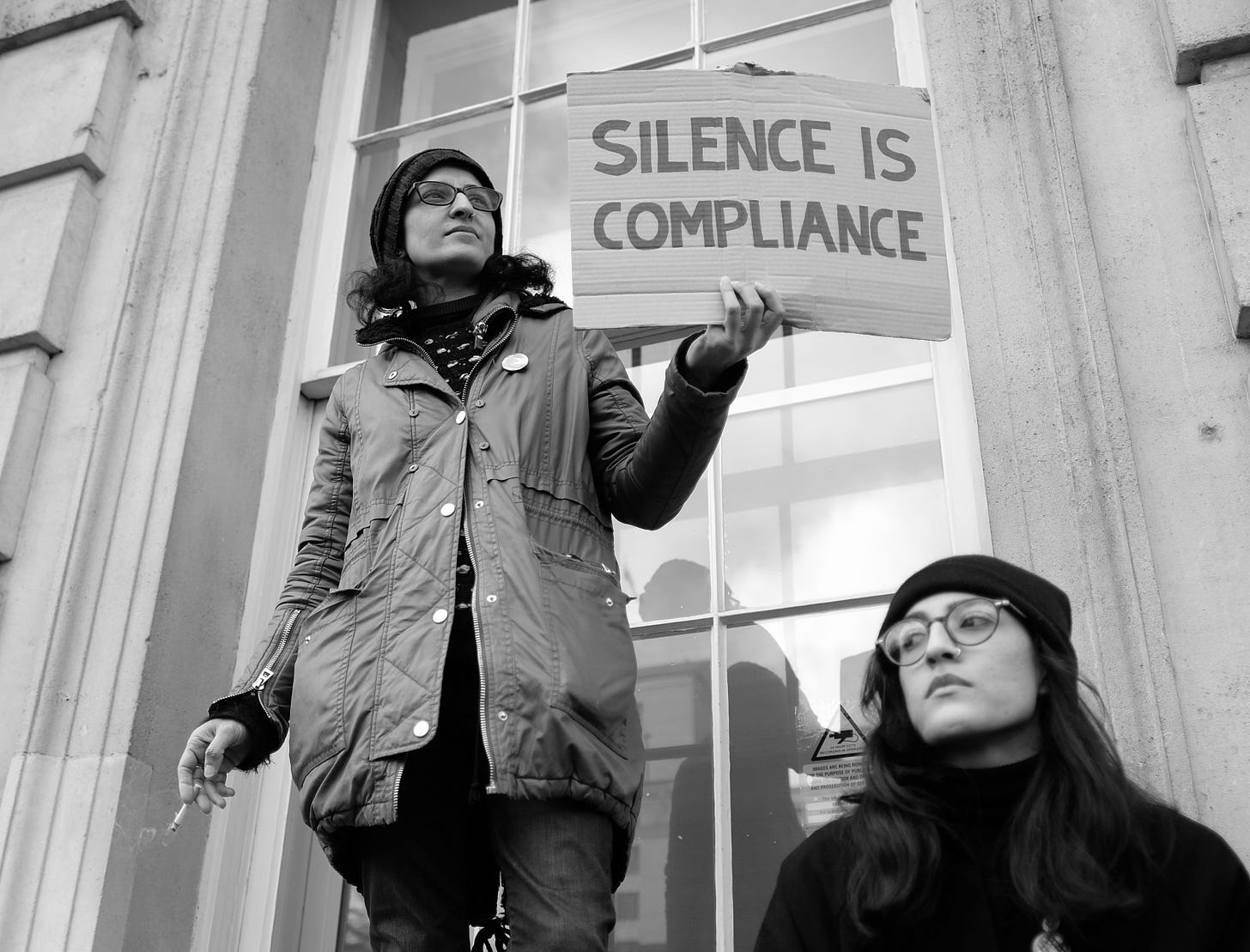When Silence Is Demanded, It’s Time to Shout
Tyranny thrives not in chaos—but in the silence of those who know better
By Dino Alonso
They will tell you not to worry.
They will say it’s just politics.
They will say the institutions are still standing, the press is still printing, the votes are still being cast.
And yet, the fear has already settled in.
It’s in the voice that hesitates.
In the professor who delivers a lecture.
In the federal worker who deletes a tweet.
In the student who looks over their shoulder before speaking in class.
It’s in the silence that has replaced dissent.
We are being told, with increasing clarity and cruelty: Do not speak, do not challenge, do not resist.
And if you do, there will be consequences.
The message comes from the top—from a man who does not govern but commands, who sees critics not as citizens but enemies, who treats opposition not as a right but a threat to be extinguished. This is not new for him. But it is growing bolder, louder, more systemic. And it is no longer confined to rhetoric.
Now it is policy.
Now it is punishment.
Now it is a campaign to silence the country into submission.
What we are witnessing is not the beginning of something. It is the acceleration of something that has long been in motion: the slow erosion of dissent through the normalization of fear.
It does not come all at once. Tyranny rarely does.
It comes first as ridicule, then retribution.
It comes as firings. As investigations. As threats.
As school boards censored, journalists slandered, whistleblowers punished, teachers reported by students emboldened to police their classrooms for ideology.
This is not “cancel culture.” This is state-sanctioned silence.
And the most dangerous part is that it works.
People fall quiet not because they agree, but because they are tired.
They stop writing. They stop questioning.
They make themselves small in hopes of avoiding the storm.
But here is what must be said: the storm does not pass when you hide from it. The storm passes through you. And when it’s gone, it leaves behind something hollow and hushed.
A nation of people who once knew how to speak.
And now choose not to.
We are told that to oppose this administration is to invite suspicion.
That to criticize its policies is to be disloyal.
That to protest is to provoke.
That to demand dignity is to disrupt “order.”
But I do not believe in order built on obedience.
I do not believe in peace purchased with fear.
I do not believe in a republic where the only safe citizen is a silent one.
The man in power believes you owe him your silence.
I say you owe him your voice.
Because if we do not speak now—loudly, defiantly, without apology—we are not preserving peace. We are preparing a grave.
Not just for democracy, but for memory. For the version of America we once hoped to become.
And if you think this cannot happen here, I invite you to look around.
The press is already under siege.
The courts are being packed and hollowed.
The legislature grows quieter with each executive outburst.
And ordinary people—once confident in their rights—now whisper where they used to shout.
This is not the future. This is now.
And what comes next is entirely up to us.
We can choose comfort. We can choose complicity.
Or we can choose the one thing history has always demanded from free people when their freedom is threatened: courage.
Courage to speak when silence is safer.
Courage to organize when the system tries to scatter us.
Courage to remember that democracy is not self-sustaining. It must be defended—not just by elections, but by voices, by bodies, by truth.
So let me ask you: What will you do when the knock comes for your neighbor?
Will you speak up then? Or will you wait, and wait, until it is you who hears the knock?
Because by then, it will be too late.
And when history asks what we did when the silencing began,
when it asks whether we stood up, or bowed down,
what will you say—if you’re still allowed to say anything at all?


